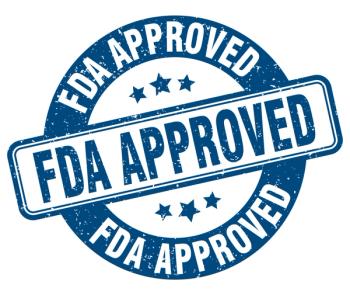
Health plans pleased with allergy drug's OTC switch
Rx to OTC switch of Schering Plough's Claritin.
NEWSBREAKS
MAJOR STORIES FOR PHARMACISTS AT DEADLINE
Health plans pleased with allergy drug's OTC switch
The approval of Schering-Plough Corp.'s allergy drug Claritin (loratadine) from prescription to over-the-counter status was a pretty sight to several health plans.
Robert Seidman, v.p. and chief pharmacy officer at WellPoint Health Networks, the Thousand Oaks, Calif.-based health plan that spearheaded Claritin's move to OTC status (Drug Topics, June 5, 2000), said, "In 1998, we noticed that we had experienced a tremendous increase in antihistamine costs. This was the beginning of double-digit prescription drug trends. We knew that unless we were able to remove inefficiencies from the drug delivery process, we'd have great difficulty providing broad-based access to critical medicines, such as gene-based and biotech drugs that are coming around the corner."
Seidman said that Claritin's OTC conversion would provide easy access for the 40 million allergy sufferers in this country. There will be the Claritin OTC, a version from Wyeth called Alavert, and generic OTC available at an average monthly price that will be less than or equal to the average brand-name co-pay today. "This empowers our allergy-suffering members to take greater care of themselves at lower costs," he said.
Medco Health Solutions also applauded the FDA for letting Claritin go OTC. The company issued a statement that said the switch "provides a tremendous opportunity for health plans and employers to save millions of dollars in drug spend. This year Medco Health clients have spent approximately $1.3 billion on nonsedating antihistamines, including more than $600 million on Claritin."
Tim Covington, Bruno Professor of Pharmacy and executive director of the Managed Care Institute, Samford University, Birmingham, Ala., believes that insurance coverage of the switched allergy medications would increase their utilization. Without coverage, there is the likelihood that patients will ask their physicians for those Rx drugs that are covered, such as Zyrtec (cetirizine HCl, Pfizer) and Allegra (fexofenadine, Aventis). "If they have good drug benefits and they know they can get something else that's covered, they'll insist on the Rx version of the antihistamine," he said.
When queried about whether coverage of the OTC allergy drugs was in the offing from WellPoint, Seidman said that since the OTC versions will cost consumers about $11 to $15 a month and WellPoint's average brand-name co-pay is $17, "it doesn't seem to make sense for us ... because it will cost less than they're probably paying in co-pays today."
Sandra Levy
Sandra Levy. Health plans pleased with allergy drug's OTC switch.
Drug Topics
2002;23:30.
Newsletter
Pharmacy practice is always changing. Stay ahead of the curve with the Drug Topics newsletter and get the latest drug information, industry trends, and patient care tips.























